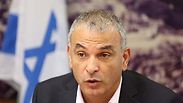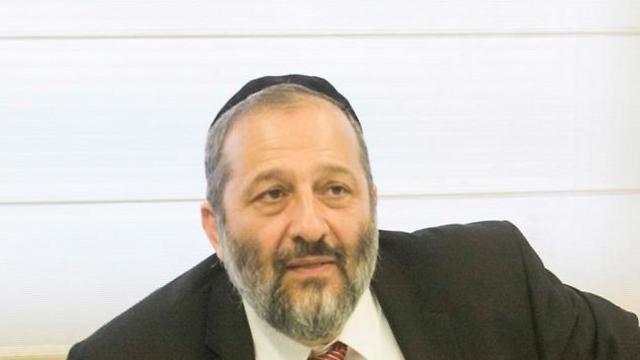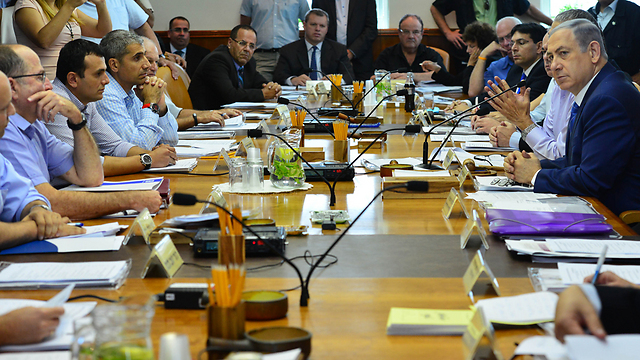
2015-2016 budget passes first reading
57 vote in favor and 53 against new state budget; budget will now have to pass second and third readings before it can officially be approved.
Difficulties in the budget's preparation mostly arose from promises given to the different parties during the coalition-forming negotiations that followed the March 2015 election. Kahlon stressed that these promises could not be kept using this version of the budget.
The government's natural gas plan, which was supposed to also go up for a Knesset vote on Wednesday, will only be presented to the parliament for deliberation, and go to a vote at a later date. Prime Minister Benjamin Netanyahu decided this course of action after Economy Minister Aryeh Deri declared he would delay transferring his powers regarding the natural gas issue until a new Antitrust Commissioner is appointed.
When presenting the budget, Kahlon said, "I'm proud to present a responsible, balanced budget to the Israeli Knesset today. This budget, approved by the government, is a testament to the government's priorities. This budget significantly expands civilian expenses – in education, healthcare, public security and more. Increases were made in all civilian issues for the benefit of Israeli citizens."
The finance minister added that the 2015-2016 budget would be presented along with a wide-reaching set of regulations that feature essential market reforms. "These are big reforms, the likes of which we haven't seen for years. In addition to benefits and reliefs to citizens' lives in living and housing expenses, we are handling the subjects of investment, infrastructure, and bringing the periphery closer to the country's center. All of these are growing engines for the economy."
The budget was finally brought to a vote after the haredi parties relented on some of their demands, including zero percent value added tax (VAT) on basic products and retroactively reinstating previous versions of child benefits.
The main issue with the budget was the size of the defense budget – an important parameter when determining the budget for other government departments, and perhaps the main reason for a flat 4.5 percent cut taken by all ministries (including defense itself).
According to Calcalist, the defense budget stands at about NIS 55 billion, but no one in the political system believes that it will stay that way. Defense Minister Moshe Ya'alon has been talking about a budget of over NIS 6 billion. Each increase in derense could increase the flat cut other ministries take or the deficit target, which jumped from two percent to 2.9 percent in the current budget.

Calcalist reported that the Education Ministry's budget will reach an all-time high in the coming year – NIS 52 billion - but that out of that sum, about NIS 40 billion are dedicated to core expenses: Salaries for kindergarten and school teachers, including special education and non-state schools.
In addition, this year's budget will include NIS 108 million allocated to "Jewish culture" – a codename for money given to Education Minister Naftali Bennett in coalition promises, which will be dedicated to supporting religious education institutions. The ministry's main operating budget is NIS 1.6 billion, with 1.2 billion defined as price increase reserves, which are used by the Finance Ministry to fund other parts of the department later in the year.
Meanwhile, the transportation budget is in for a cut. In 2014, it stood at NIS 12 billion, but the current proposal puts it down to NIS 9.8 billion. This sum is mostly (two-thirds) intended for investing in roads, with money for public transportation coming from the rest.
Kahlon has also announced his intention to lower the value added tax (VAT) from 18 to 17 percent. The decision was influenced by tax revenue surpluses in recent months, and it is hoped that it will stimulate growth in the economy. The decision is said to also be motivated by Kahlon's concern that tax surpluses will be used to increase the defense budget instead of benefiting citizens directly.











